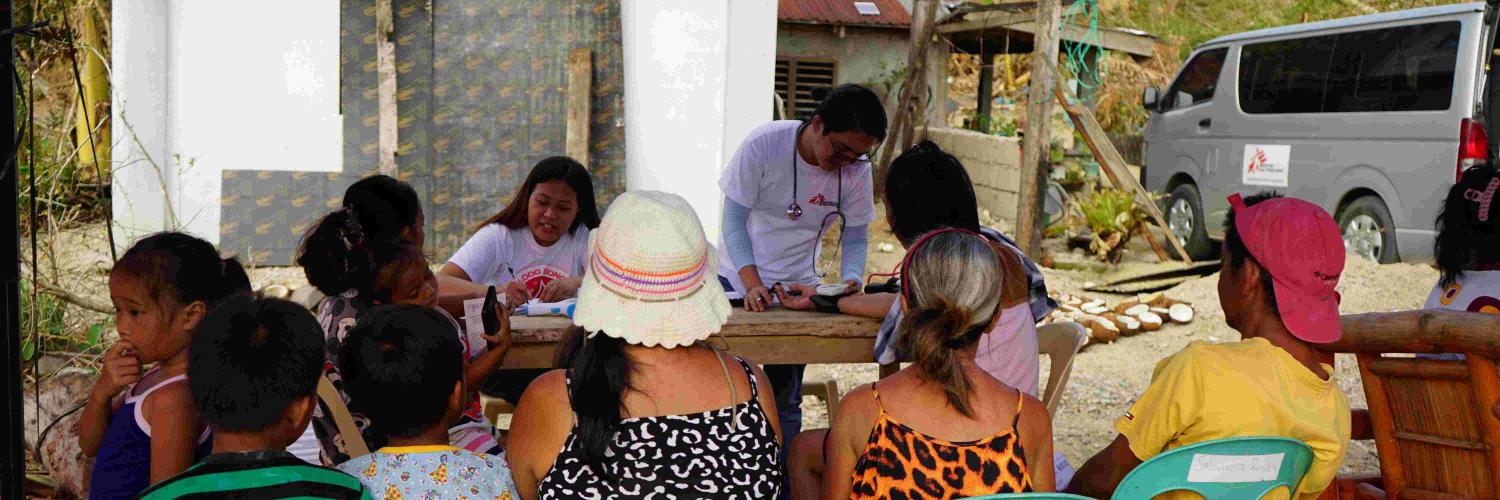Doctors Without Borders / Médecins Sans Frontières (MSF) began operations in the Philippines in 1984. Since then, our work has brought us to Luzon, Visayas and Mindanao, working on tuberculosis, HIV/AIDS, disaster response, and COVID-19.
Timeline:
- 1984: Initial projects in the Philippines provided medical aid in response to the health needs brought about by emergencies and natural disasters.
- 1989 to 1995: A tuberculosis control project was launched in Davao City.
- 1992: A Metro Manila project offered medical, psychosocial and socio-legal assistance to street children.
- 1996 to 1999: We launched an STI/HIV/AIDS prevention and control project in Davao City.
- 1998: We provided further support for the health care project for street children, Wat San and pharmacy cooperative projects.
- July 2000: We began providing assistance to populations displaced by the conflict between the Philippine government and the Moro Islamic Liberation Front (MILF).
- 2012: In collaboration with the Department of Health, mobile clinics provided services in typhoon-stricken areas in Cagayan de Oro and Iligan City.
- 2013: MSF provided aid in the aftermath of the Typhoon Haiyan disaster.
- 2015: An agreement was signed with the Department of Health to provide reproductive health services to slum dwellers in Manila.
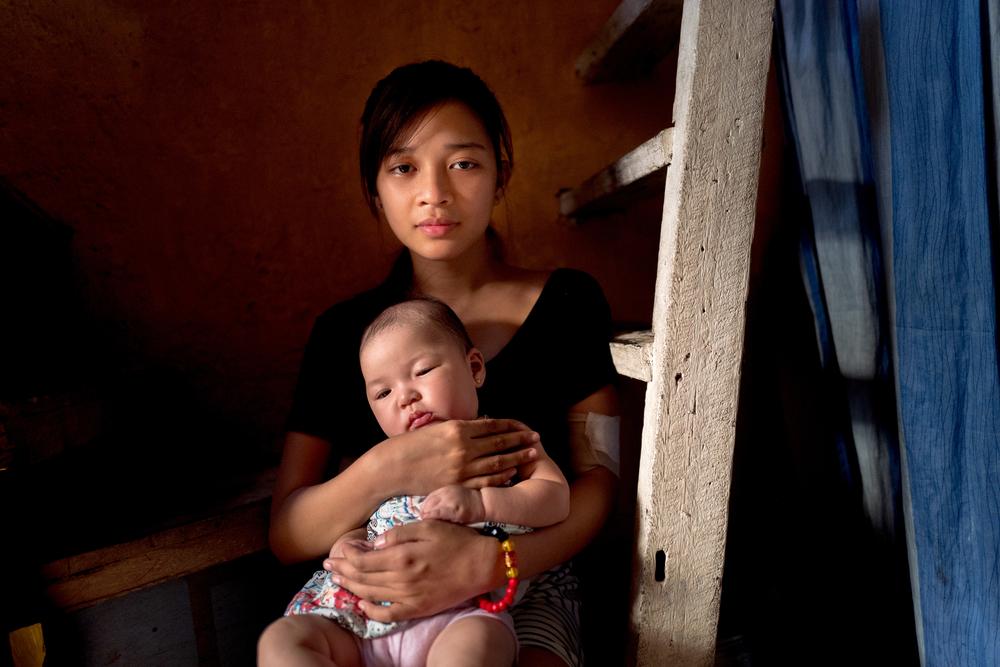
Nicole, 18, teenage mother, and her 3-month-old child in their home in District 121, Tondo, Manila. She had just gotten a contraceptive implant at the Lila Clinic, run by Philippine NGO Likhaan, in partnership with Doctors Without Borders. Philippines, 2019 © Melanie Wenger
- October 2016: We began working with local partner Likhaan, offering integrated sexual and reproductive health care and services in Manila.
- October 2017: We started providing support to the Department of Health in post-conflict Marawi City.
- July 2017: We launched a project to assist people who had been forced to flee their homes in the fighting. We provided support with water and sanitation and psychological first aid for a total of 11,000 people living in evacuation centres in Marawi and the surrounding region.
- 2018: We started working in clinics in three transitory shelters, as well as in the main CHO, providing free consultations and free medication for primary healthcare. We provided around 18,000 consultations, including more than 12,000 on contraception, medical care for 65 survivors of sexual violence and 1700 ante- and post-natal consultations.
- 2019: We started a program focused on non-communicable diseases in Marawi.
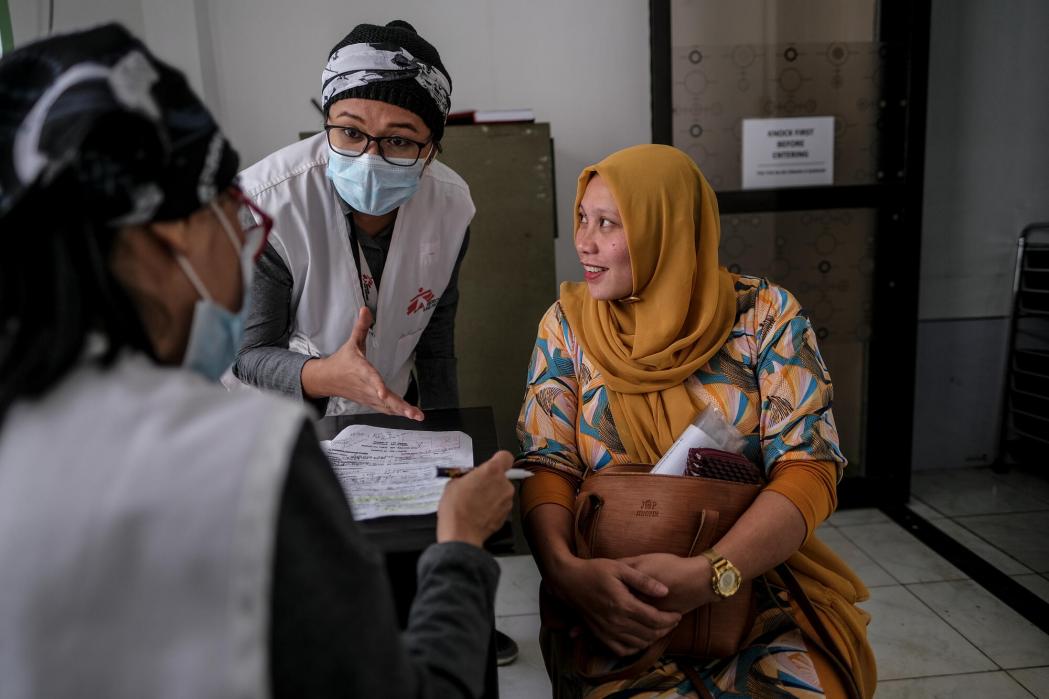
Primary healthcare in Marawi. © Veejay Villafranca/MSF
- 2020: Teams supported the contact tracing activities at the community level, and helped implement IPC measures in the health facilities that provide care to COVID-19 patients.
-
2020: In the slums of Tondo, Manila, we supported households and their close contacts with over 2,000 hygiene kits. In the barangay health centers, we contributed to improving infection prevention and control (IPC) measures, through training, the provision of personal protective equipment, handwashing stations, cleaning supplies, and educational material on the virus. To help protect barangay health emergency response staff, we provided IPC supply: face masks, face shields, alcohol and hand soap.
- June to October 2020: We started supporting Manila's San Lazaro Hospital with human resources, PPE, pharmacy, testing, data management, case management capacity, biomedical equipment, medical supplies, personal protective equipment, training for infection prevention and control, and infrastructure improvements.
-
July 2020: A COVID-19 mobile information drive passed health promotion messages to vulnerable populations in Marawi. The team trained many local health teams in charge of COVID-19 surveillance.
- November 2020: Two typhoons hit the Philippines in quick succession. We conducted training on infection prevention and control (IPC) around COVID-19, together with donations of personal protective equipment (PPE) for those in the evacuation centres.
- December 2020: After five years, the activities in Lila Clinic were handed over to Likhaan.
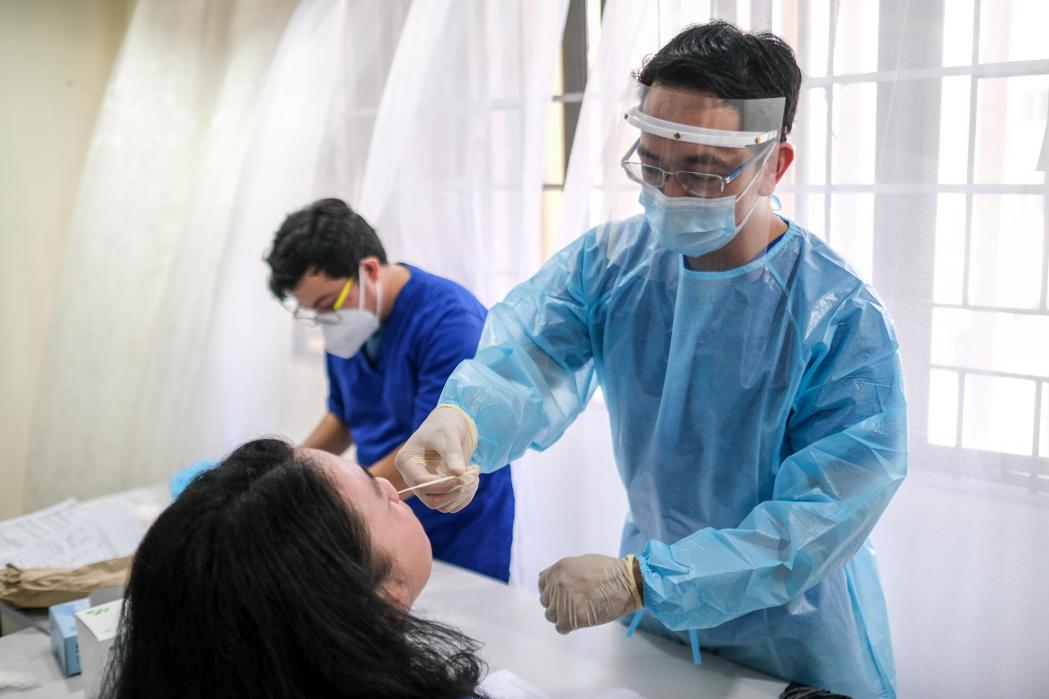
Staff get swabbed for COVID-19 after their deployment at San Lazaro Hospital. © Veejay Villafranca/MSF
-
2021: In partnership with the Manila Health Department, we launched a tuberculosis (TB) project in Tondo, to address challenges in screening and treatment that were exacerbated by the COVID-19 pandemic.
-
January to March 2022: We provided medical and humanitarian assistance to communities on the remote islands of Dinagat, Siargao and other outlying areas, some of the worst affected by Typhoon Rai (local name: Odette).
-
2022: In Tondo, Manila, our TB project expanded its active case-finding activities to include the use of computer-aided diagnostics. To address the stigma and misconceptions around the disease, the project implemented health promotion and education activities. Patients who were confirmed to have TB underwent treatment at government health centers.
-
December 2022: We closed our project in Marawi and handed over activities to local health actors.
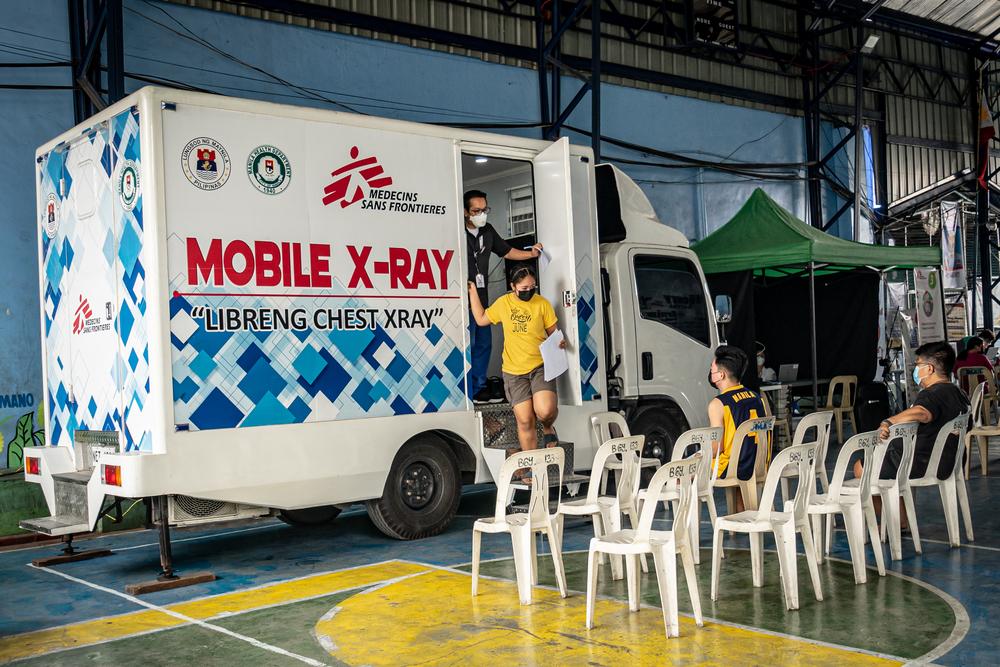
Doctors Without Borders takes this truck to different barangays (communities) around Tondo, Manila, to offer free x-rays to the residents. March, 2023 © Ria Kristina Torrente
-
November 2023: The shear line brought significant amounts of rain. Our teams launched medical and water and sanitation activities in Brgy. Liberty, Catarman, Northern Samar, together with local health authorities. The team also distributed jerrycans with filtered water, and conducted mental health individual and group activities.
-
October 2024: Severe Tropical Storm Trami (local name: Kristine) entered the Philippine area of responsibility. Doctors Without Borders was among the first organizations to arrive in the area, and started responding to the most urgent needs. We conducted mobile clinics, with mental health and psychosocial support sessions for the community, especially the frontliners. We distributed hygiene kits, as well as drinking water.
-
November 2024: Supertyphoon Man-yi (local name Pepito) was the sixth storm to hit the Philippines in a single month. We launched a mobile clinic in Dinadiawan, Dipaculao, Aurora. With local healthcare workers, our team provided comprehensive healthcare services to the community, including medical consultations, mental health and psychosocial support, wound care, routine vaccinations, dispensing of medications and screening children for malnutrition.
Responding to disasters
The Philippines sees an average of twenty tropical cyclones every year, but in recent years these cyclones have been increasing in intensity, resulting in the loss of life and property, and increasingly affecting vulnerable communities. Doctors Without Borders has responded to many such disasters over the years, from Haiyan (local name: Yolanda) in 2013 and Goni and Ulysses in 2020, to Rai in 2022 and Trami and Man-yi in 2024.
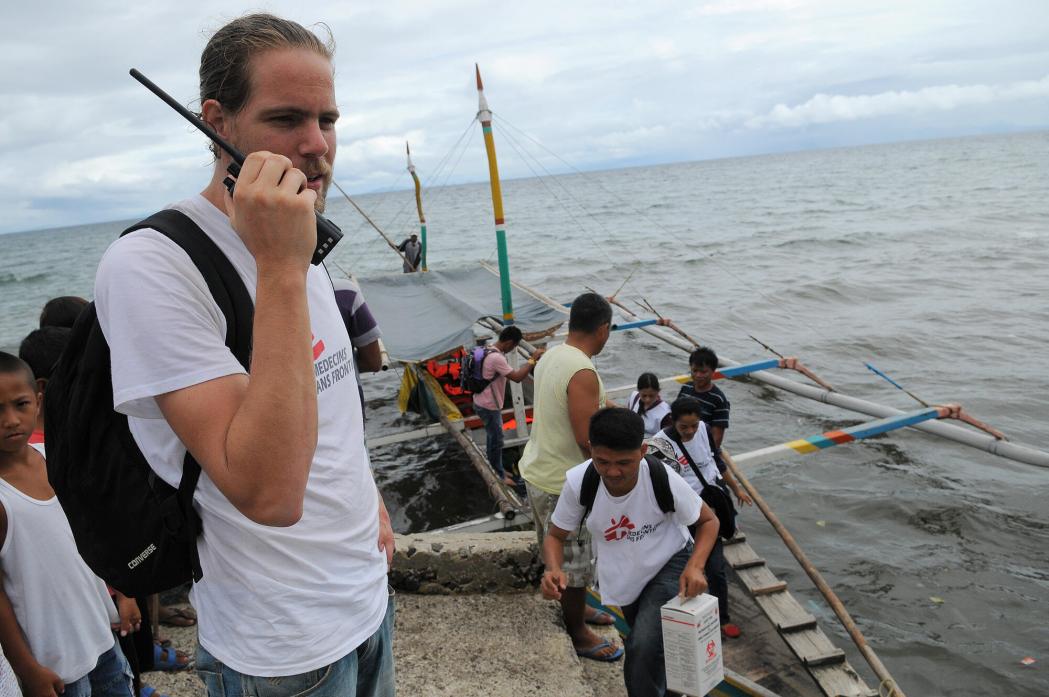
2013: Multiple provinces and municipalities were hit by Supertyphoon Haiyan. Within 48 hours, Doctors Without Borders was on the ground, setting up tent hospitals and assessing other needs. Within weeks, teams brought much-needed mobile clinics and supplies to other island communities affected by Haiyan. © MSF
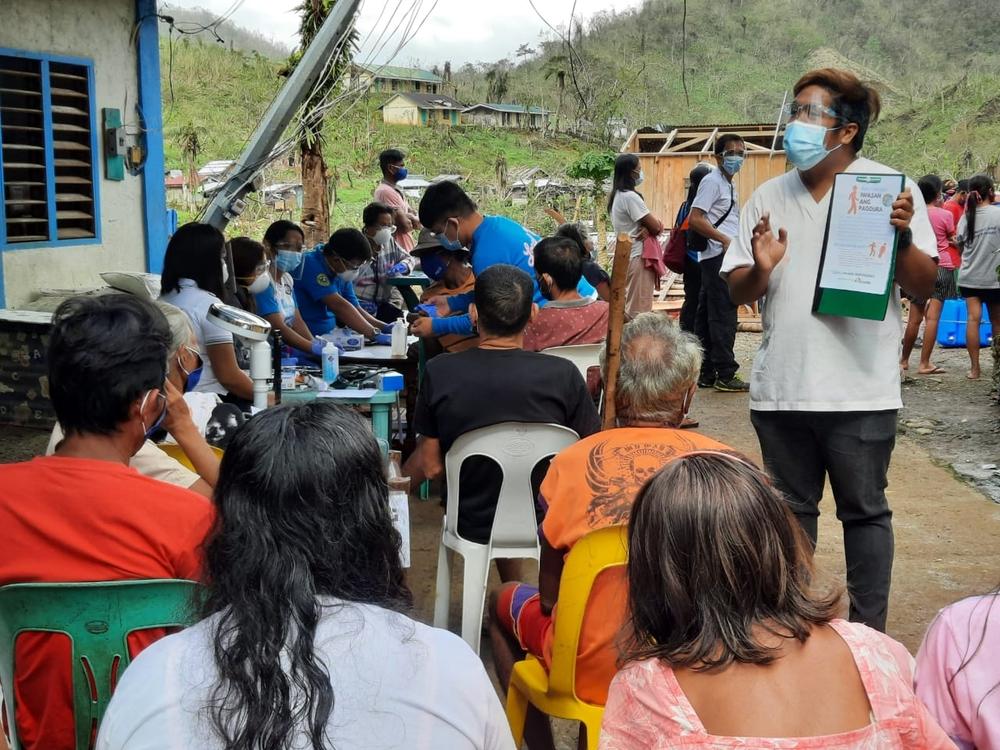
2020: Typhoons Goni and Ulysses hit the Philippines in quick succession. Teams distributed jerry cans for storing drinking water, and COVID-19 prevention kits, which included two washable face masks, hand sanitiser and one face shield per person, at both two evacuation centres. © MSF
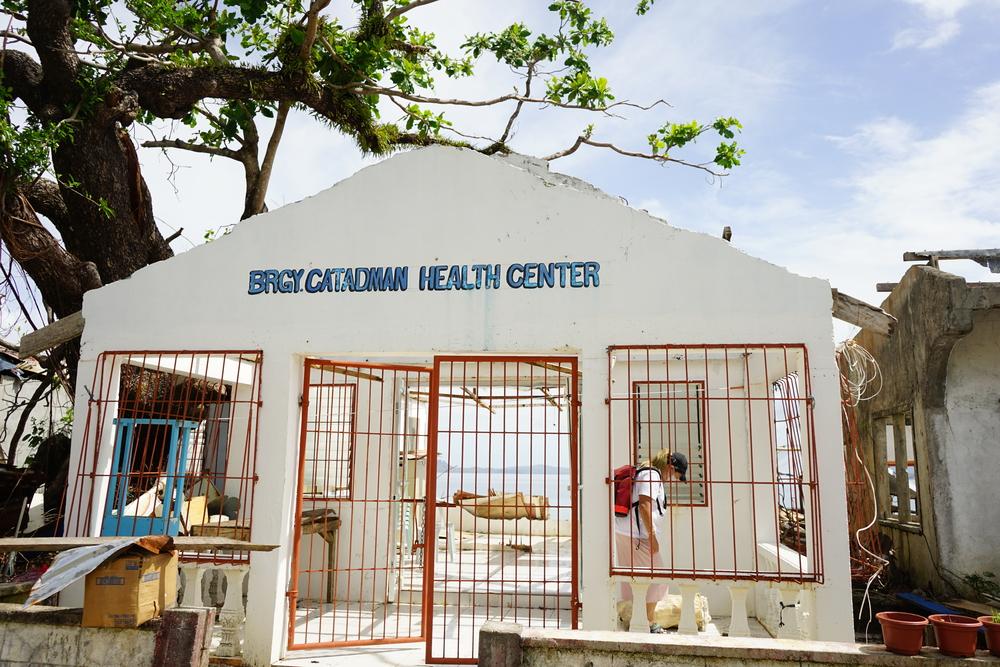
2022: Local hospitals and health centers suffered significant damage during Typhoon Rai (local name Odette). Doctors Without Borders supported local health teams with human resources and medication, so that health services could continue despite the damage to the facilities. In distant island barangays, Doctors Without Borders conducted mobile clinics and psychosocial support sessions for communities. © Regina Layug Rosero/MSF
ec41.jpg?itok=ItLLTbxB)
2023: In November 2023, the shear line brought significant amounts of rain over Oriental Mindoro, Quezon province, the Bicol region, and Eastern Visayas. Catarman Northern Samar, received 618 mm of rain, well above the normal monthly average. Houses and airports were damaged, with many streets and bridges unpassable. At least 307,000 people in five regions were affected. Our teams launched medical and water and sanitation activities in Brgy. Liberty, Catarman, together with local health authorities. The team also distributed jerrycans with filtered water, and conducted mental health individual and group activities. © Sarah Jane Deocampo
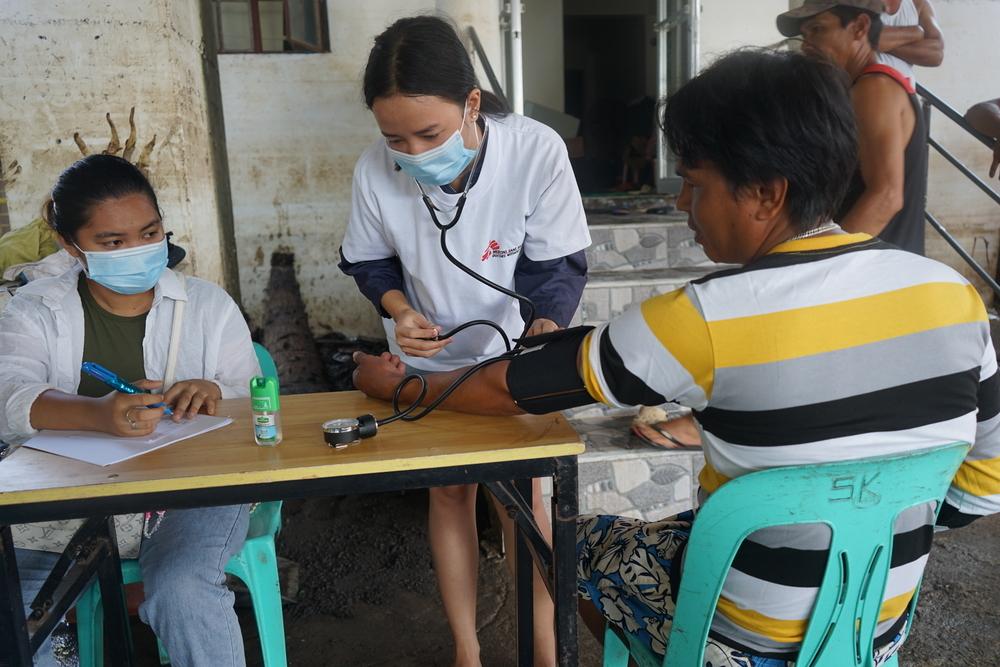
2024: For four days, Severe Tropical Storm Trami brought intense rains to the entire Luzon and Visayas regions, resulting in widespread flooding and landslides. More than 7 million people were affected in 17 regions of the country, with over 100 dead. The province of Camarines Sur is one of the hardest hit, with 36 out of 37 municipalities flooded. There has been extensive damage to property and livelihood, with families losing homes and crops to the floods. Doctors without Borders was among the first organizations to arrive in the area.
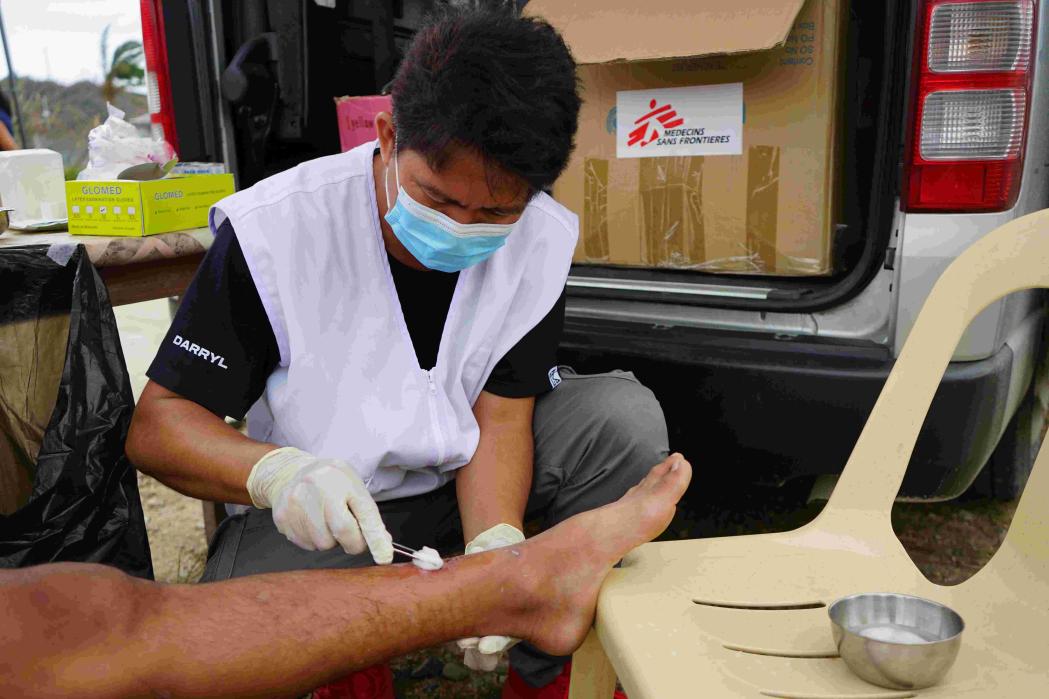
2024: Supertyphoon Man-yi (local name Pepito) was the sixth storm to hit the Philippines in a single month, leaving devastation in its wake. Doctors Without Borders launched a mobile clinic in the seaside community of Dinadiawan, in Dipaculao, Aurora. For one week, Doctors Without Borders was joined by the Department of Health and provincial and municipal healthcare workers to provide comprehensive healthcare services to the community. These services include medical consultations, mental health and psychosocial support, wound care, routine vaccinations, dispensing of medications and screening children for malnutrition.
Tackling tuberculosis in Tondo
In partnership with the Manila Health Department, we launched a tuberculosis (TB) project in Tondo, to address challenges in screening and treatment that were exacerbated by the COVID-19 pandemic. A key element of the project is a mobile x-ray truck for chest x-rays, which we bring to different communities in our search for those with active TB, referring patients to local health centres for treatment. Finding active cases of TB also means conducting home visits immediately after diagnosis, to screen patients’ households and close contacts, and to offer preventive TB treatment to children.
In 2022, our TB project expanded its active case-finding activities to include the use of computer-aided diagnostics. To address the stigma and misconceptions around the disease, the project implemented health promotion and education activities. Patients who were confirmed to have TB underwent treatment at government health centers, and received regular support and counseling from our teams. To ensure that patients would complete their treatments, in 2024 Doctors Without Borders made a donation of TB drugs to MHD.
Children are especially vulnerable to TB, particularly in an environment such as Tondo. Since the Philippines adopted the World Health Organisation (WHO) guidelines on a shortened treatment regimen for children with non-severe drug-sensitive TB, Doctors Without Borders has been supporting MHD with training and implementation.
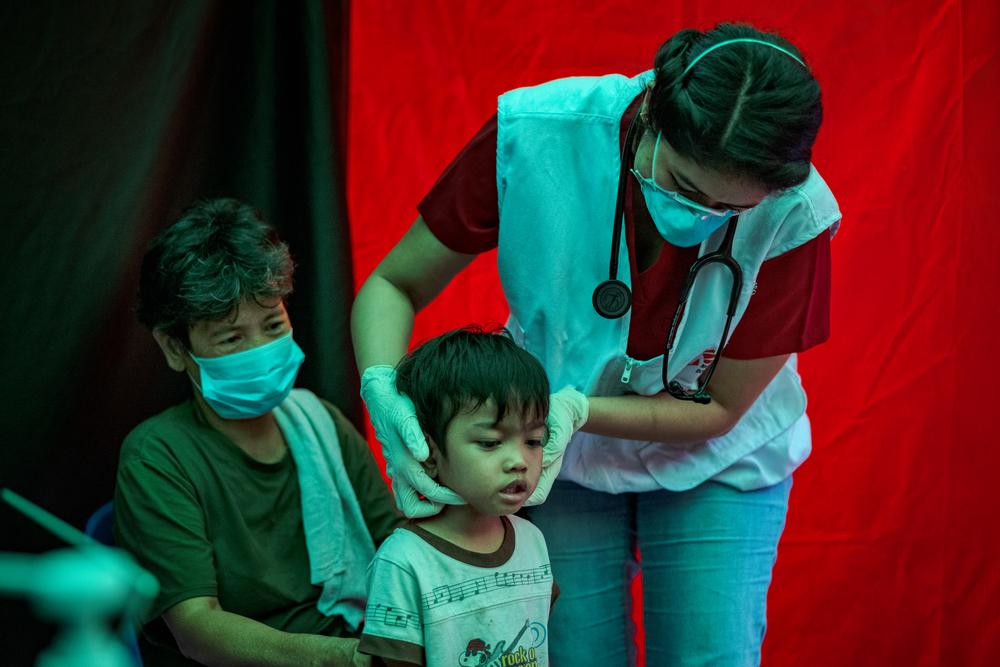
Doctor Trisha Thadhani examines a young boy whose grandmother is confirmed to have TB. March 2023 © Ezra Acayan
